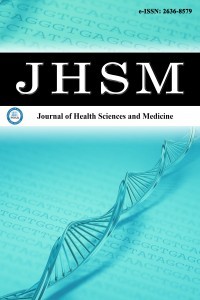1.
Durak MB, Simsek C, İnan B, Yuksel I. Ileocecal valve that cannot be intubated in Crohn’s disease: is this a sign of poor prognosis? <em>Int J Colorectal Dis.</em> 2023;38(1):103.
2.
Cagir Y, Durak MB, Simsek C, Yuksel I. Specific oral manifestations in adults with Crohn’s disease.<em> J Clin Med.</em> 2024;13(13):3955.
3.
Gordon H, Minozzi S, Kopylov U, et al. ECCO guidelines on therapeutics in Crohn’s disease: medical treatment. <em>J Crohns Colitis.</em> 2024:jjae091. doi:10.1093/ecco-jcc/jjae091
4.
Cho JH. The genetics and immunopathogenesis of inflammatory bowel disease. <em>Nat Rev Immunol. </em>2008;8(6):458-466.
5.
Erdoğan Ç, Durak MB, Alkan A, et al. Comparison of infliximab with adalimumab in biologic-naïve patients with Crohn’s disease: a single-center 13-year experience. <em>Eur Rev Med Pharmacol Sci.</em> 2023;27(12):5757-5766.
6.
Lin D, Jin Y, Shao X, et al. Global, regional, and national burden of inflammatory bowel disease, 1990-2021: insights from the global burden of disease 2021. <em>Int J Colorectal Dis.</em> 2024;39(1):139.
7.
Strober W, Fuss IJ. Proinflammatory cytokines in the pathogenesis of inflammatory bowel diseases. <em>Gastroenterology. </em>2011;140(6):1756-1767.
8.
GBD 2019 Demographics Collaborators. Global age-sex-specific fertility, mortality, healthy life expectancy (HALE), and population estimates in 204 countries and territories, 1950-2019: a comprehensive demographic analysis for the global burden of disease study 2019. <em>Lancet. </em>2020;396(10258):1160-1203. doi:10. 1016/S0140-6736(20)30977-6
9.
Silverberg MS, Satsangi J, Ahmad T, et al. Toward an integrated clinical, molecular and serological classification of inflammatory bowel disease: report of a working party of the 2005 Montreal World Congress of Gastroenterology. <em>Can J Gastroenterol.</em> 2005; 19(Suppl A):5A-36A.
10.
Kaplan GG, Windsor JW. The four epidemiological stages in the global evolution of inflammatory bowel disease. <em>Nat Rev Gastroenterol Hepatol.</em> 2021;18(1):56-66.
11.
Kim JE, Oh SJ, Lee CK. Forecasting the future prevalence of inflammatory bowel disease in Korea through 2048: an epidemiologic study employing autoregressive integrated moving average models. <em>J Gastroenterol Hepatol.</em> 2024;39(5):836-846.
12.
Ananthakrishnan AN, Kaplan GG, Ng SC. Changing global epidemiology of inflammatory bowel diseases: sustaining health care delivery into the 21<sup>st</sup> Century. <em>Clin Gastroenterol Hepatol.</em> 2020;18(6):1252-1260.
13.
Molodecky NA, Soon IS, Rabi DM, et al. Increasing incidence and prevalence of the inflammatory bowel diseases with time, based on systematic review. <em>Gastroenterology.</em> 2012;142(1):46-54.
14.
Ng SC, Shi HY, Hamidi N, et al. Worldwide incidence and prevalence of inflammatory bowel disease in the 21st century: a systematic review of population-based studies. <em>Lancet.</em> 2020; 396(10256):e56.
15.
Coward S, Benchimol EI, Bernstein CN, et al. Forecasting the incidence and prevalence of inflammatory bowel disease: a Canadian nationwide analysis. <em>Am J Gastroenterol</em>. 2024;119(8): 1563-1570.
16.
Danpanichkul P, Duangsonk K, Lopimpisuth C, et al. Geographical and sociodemographic epidemiology of inflammatory bowel disease in young females from 2010 to 2019. <em>Dig Liver Dis</em>. 2024.
17.
Wang R, Li Z, Liu S, Zhang D. Global, regional and national burden of inflammatory bowel disease in 204 countries and territories from 1990 to 2019: a systematic analysis based on the global burden of disease study 2019. <em>BMJ Open</em>. 2023;13(3): e065186.
18.
Koloski NA, Bret L, Radford-Smith G. Hygiene hypothesis in inflammatory bowel disease: a critical review of the literature. <em>World J Gastroenterol</em>. 2008;14(2):165-173.
19.
Rizzello F, Spisni E, Giovanardi E, et al. Implications of the westernized diet in the onset and progression of IBD. <em>Nutrients</em>. 2019;11(5):1033.
20.
Weidner J, Kern I, Reinecke I, et al. A systematic review and meta-regression on international trends in the incidence of ulcerative colitis in children and adolescents associated with socioeconomic and geographic factors. <em>Eur J Pediatr</em>. 2024;183(4): 1723-1732.
21.
Bernstein CN, Eliakim A, Fedail S, et al. World Gastroenterology Organisation global guidelines inflammatory bowel disease: update August 2015. <em>J Clin Gastroenterol</em>. 2016;50(10):803-818.
22.
Greuter T, Manser C, Pittet V, Vavricka SR, Biedermann L. Gender differences in inflammatory bowel disease. <em>Digestion</em>. 2020;101(Suppl 1):98-104.
23.
Mak WY, Zhao M, Ng SC, Burisch J. The epidemiology of inflammatory bowel disease: east meets west. <em>J Gastroenterol Hepatol</em>. 2020;35(3):380-389.
24.
Zelinkova Z, Stokkers PC, van der Linde K, Kuipers EJ, Peppelenbosch MP, van der Woude CP. Maternal imprinting and female predominance in familial Crohn’s disease. <em>J Crohns Colitis</em>. 2012;6(7):771-776.

